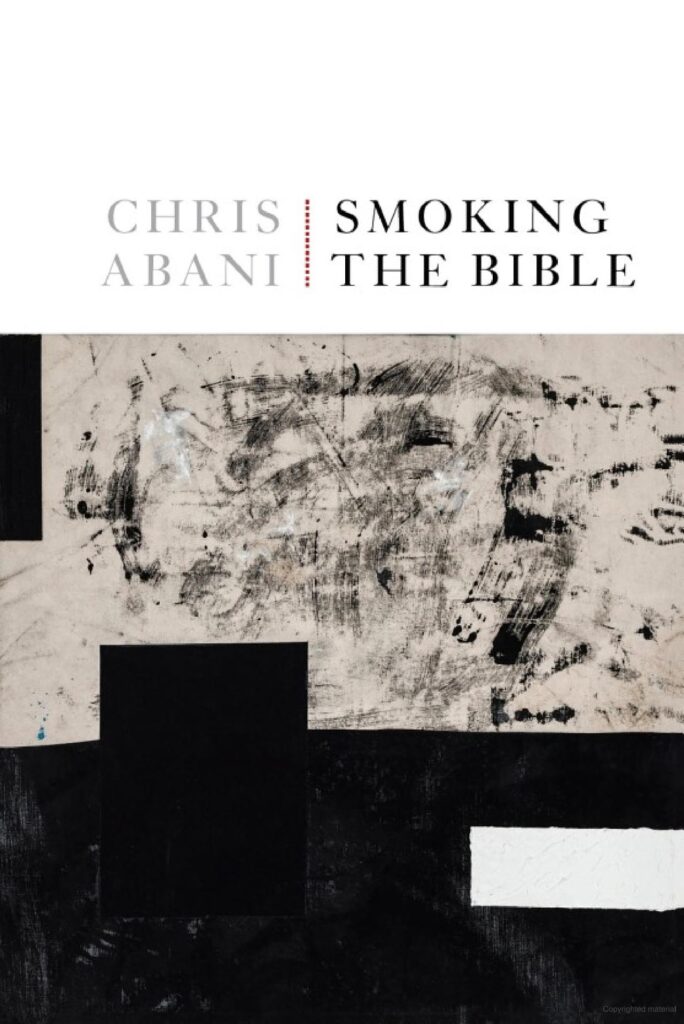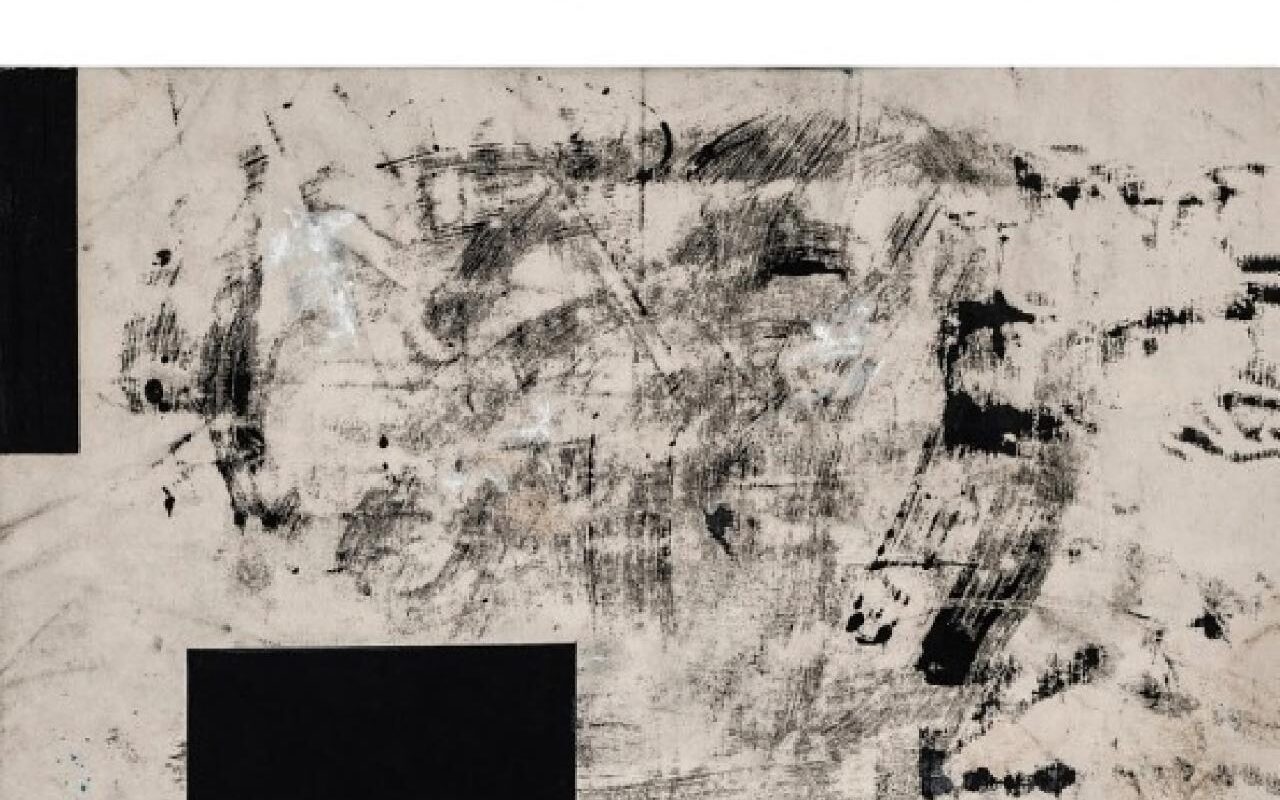 When choosing fiction or poetry to review here, my first requirement is that the writing be from or about the Great Lakes region. In choosing Chris Abani’s seventh poetry collection, Smoking the Bible, I made a geographically capacious selection. In this intense work of 54 poems, Abani takes the reader on a journey by train through Midwestern cornfields and back to his youth in Nigeria. The train takes the poet on a journey to his elder brother who has been diagnosed with terminal cancer; the poems lead the reader through family history.
When choosing fiction or poetry to review here, my first requirement is that the writing be from or about the Great Lakes region. In choosing Chris Abani’s seventh poetry collection, Smoking the Bible, I made a geographically capacious selection. In this intense work of 54 poems, Abani takes the reader on a journey by train through Midwestern cornfields and back to his youth in Nigeria. The train takes the poet on a journey to his elder brother who has been diagnosed with terminal cancer; the poems lead the reader through family history.
Abani is a great poet and storyteller. The reader will pick up on details of his family of origin as they move through the book, breadcrumbs of facts stewed with the meat of deep feelings and fresh imagery. Each poem holds its own as an individual work of art, but I also felt that each needs the context of the others to be fully realized. Like members of a family, to not know each poem in concert with the others is to have only a partial knowledge.
As I joined the poet on his journey through the collection, we metamorphized into a “train snaking track, snaking thoughts.” Within Smoking the Bible is a sense of a movement that manifests from the way this train reappears, even as the landscape outside changes from ripening corn to drifts of snow. Presumably coming or going from a visit with his brother, the poet recalls their mother:
You were always her favorite. The best of us.
How to broach influence? How to speak of us
without speaking of Father and Mother?
He can’t. The coming poems are all about the speaker’s family. Abani grew up in Afikpo, Nigeria with his Igbo father and English mother. He writes of a brother, with whom he shared the kind of tender connection that siblings who survived abuse together often have with one another. He writes, “There was a fire in you … but that flicker of light was a burn too much for / Father and he made himself your fireman.” He and his brother smoke hand-rolled cigarettes, made with the pages of the family Bible. It is revenge against their father, who had used that Bible as a literal weapon with which to beat them.
This Bible is heavy with vengeance.
Not because its pages char the path
of the wrathful God of a wrathful people.
But because Father beat us
with its leather-bound weight.
This was the genesis of the smoke,
the retaliation of burning palms.
These poems are alight with themes of anger, pain, forgiveness, and memory. I was particularly moved by “Grace,” which tells of a cousin who killed his own father. Such actions, if not for “the perverted beauty of grace,” the Abani brothers might have taken as well. Instead, they left, and their hate moved with them. For his brother, “I have seen the bees you keep in your small English / garden–hate that has died to honey.” Abani’s brother suffered much at the hands of their father, and when he ran away, the speaker found him, brought him home to their red-eyed mother and further violence from their father. This recollection haunts the poet. “I burn with a thing I still have no name for.” We learn that while his father died alone, in Abani’s youth, the man was inescapable. Their mother also tried to break free, but “No woman can leave five children like a wayward past.”
All the doors white men
closed in my father’s face
cannot compare to the void
in which my mother found no door.
Abani eventually left to study in the UK and then in the US (he now lives in Chicago). He calls himself a migrant, his migration beginning in childhood, in Nigeria. “…deep / inside me the great migration begins, the steady trek / to adolescence and beyond, and the knowledge / that no light can be trusted entirely.” His adopted home cannot be entirely trusted, either:
The first lie they tell in America
is the lie of immigrants. The truth
is America is a nation of refugees
of trauma, displacement, and fanatical hope.
There’s a lot of pain in these pages. There is also transcendence. For example, in the poem “Allegory,” the poet visits his uncle, the native priest, to put a hex on his father. He is instructed to go and gather palm branches first, the object his father had used as a weapon against him. Palms gathered, his uncle instructs him, “Go, sweep / the anger from your heart.”
Abani’s poems are very sensory. Scents, for example, are often mentioned, how they evoke memory: the smell of burning herbs, the smell of blood, of tea “heavy with milk and sugar.” There’s the image of rabbit tracks across snow, “an insistent alphabet,” and the sound of a brother’s keening “just before / the first blow landed.” Abani’s wordsmithing allows readers to experience the fearful intimacy of witnessing Abani’s image-rich world.
We are allowed to accompany the poet on a train through a winter night, toward “that final farewell” with his brother, “that great sadness.” Elsewhere Abani writes, “Here in the Midwest, winter haunts everything, / even a summer afternoon.” It’s true. Here in the Chicago suburbs, my adopted home, it is never far from my mind that I survived winter, with another winter around the corner. My father was not like Abani’s, but I feared him in my childhood, as did my siblings. Now that we are in middle age, we never speak of this aspect of our growing up. I’ve forgiven. My childhood will not return like an annual cold season, but the memories cannot be sublimated either. Trauma imposed upon the body finds its niche and settles in, silent and undead. Smoking the Bible grapples with that unease, with history alongside life in the present, with the dead and the ongoing journey of those who have not yet joined them.
Emily Updegraff
Emily is a Reviews Editor at Great Lakes Review.
